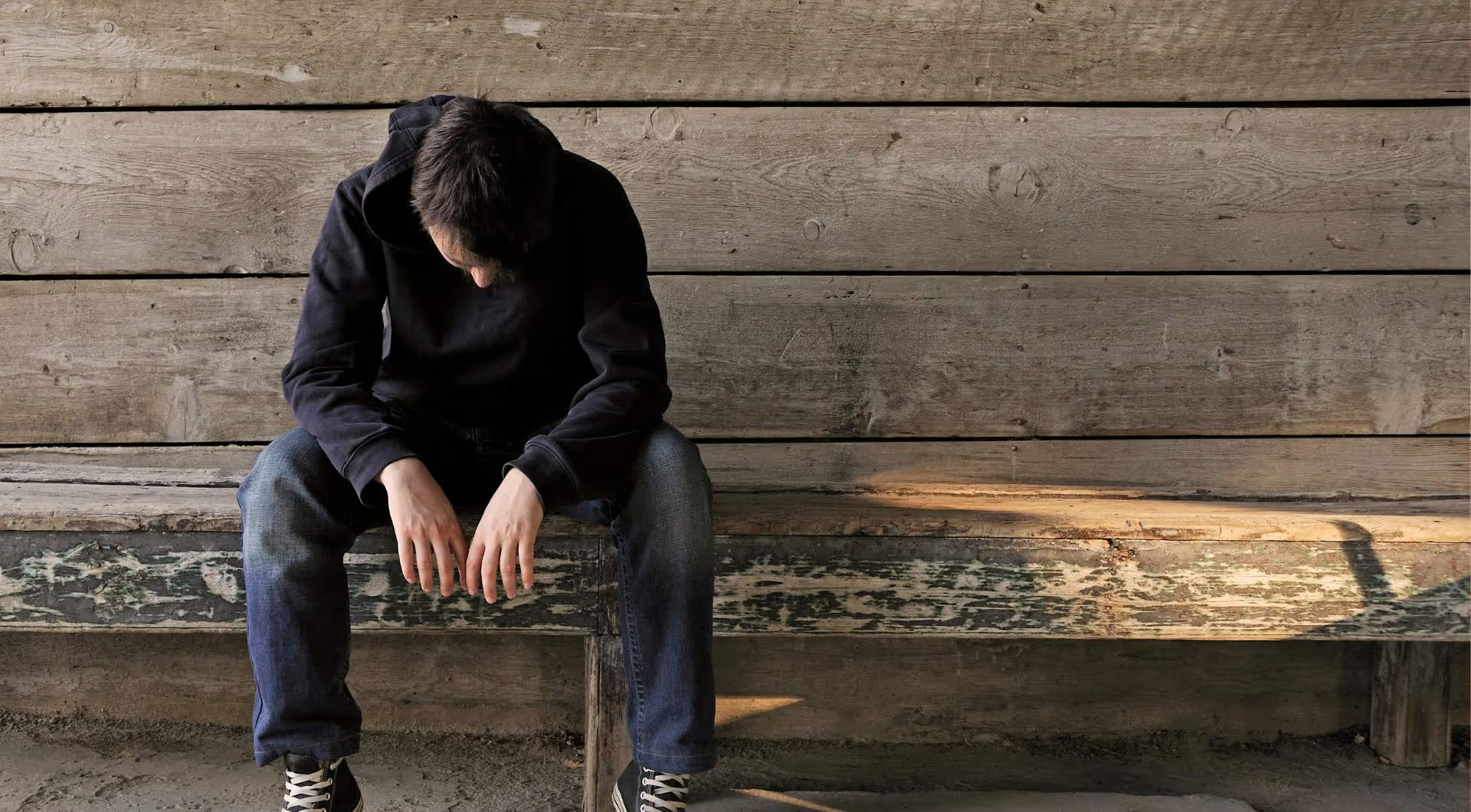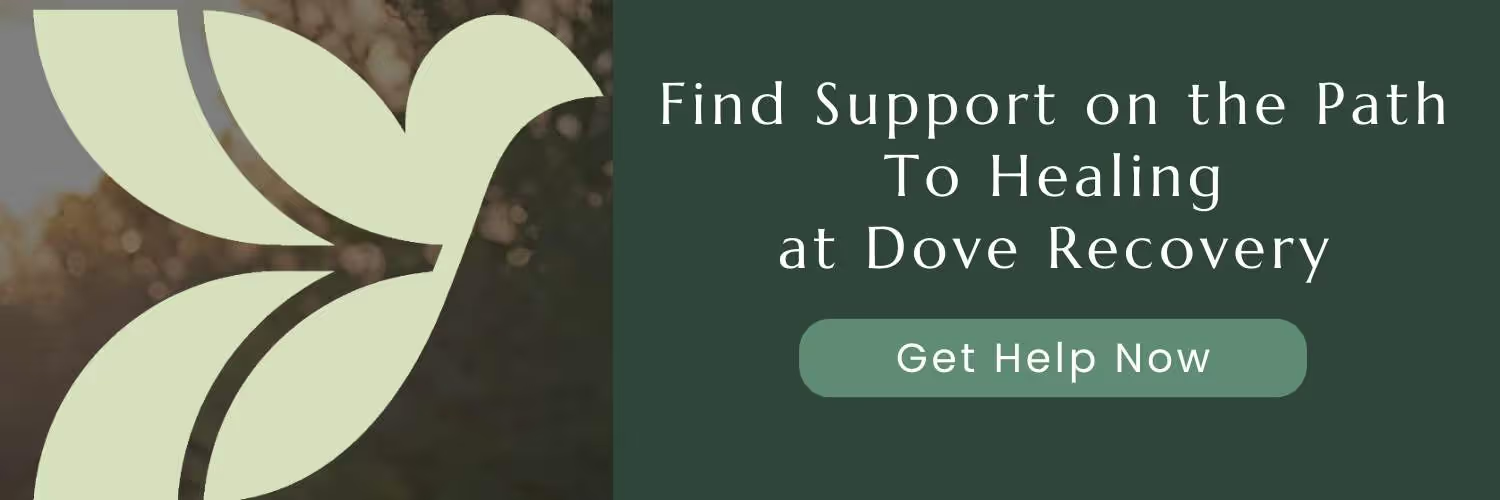From Subtle Shifts to Major Risks: 7 Warning Signs of Relapse

It started with skipped calls. Then the texts got shorter. “Just tired,” she said. But her eyes, once full of quiet determination, looked distant when she finally showed up late to a support group meeting, if she came at all. Her laughter felt forced, her shoulders tense. To most people, it didn’t look like anything was wrong.
But her sister knew better. She'd seen this before. And she knew — relapse doesn't always begin with using. Sometimes, it begins in silence.
Whether you’re in recovery or supporting someone who is, recognizing the early warning signs of relapse can make all the difference. In this article, we’ll walk through what those signs look like, how relapse unfolds, and what to do when it does.
Table of Contents
- Is Relapse Part of Recovery?
- 7 Common Warning Signs of Relapse
- FAQs About the Warning Signs of Relapse
- Find Strength and Support on the Path To Healing With Dove Recovery’s Addiction Counseling and Therapy
Relapse can feel discouraging, but it doesn’t mean recovery is over or that treatment has failed. In fact, for many people, relapse is a common part of the recovery journey. It can highlight areas that need more support, different coping strategies, or a renewed connection to treatment.
What matters most is how we respond. With the right support, a relapse can become a turning point. It’s not the end of the road, but a reminder to keep going.
At Dove Recovery, we meet people where they are — with compassion, not judgment. Whether you’re navigating relapse yourself or helping someone you care about, we’re here to support you in taking the next step forward.
#1: Dishonesty
One of the earliest signs of relapse can be small acts of dishonesty — lying to yourself or others about behaviors, feelings, or whereabouts. It’s often a way to avoid difficult conversations or uncomfortable emotions.
Recognizing dishonesty isn’t about judgment; it’s an opportunity to pause, reflect, and reach out for support. Honest communication with trusted friends, family, or a counselor can help prevent these early cracks from growing into something more serious.
#2: Neglecting Self-Care
When someone begins to relapse, basic self-care, like eating well, sleeping enough, or attending appointments, can start to slip. It’s often a sign that stress, cravings, or emotional strain are taking a toll.
Noticing these changes early is important. Encouraging gentle routines, checking in on their well-being, or offering support with daily tasks can help someone reconnect with their recovery before the situation escalates. Dove Recovery is here to support you every step of the way toward lasting healing.
#3: Romanticizing Past Use
Thinking about past substance use or unhealthy behaviors as “fun” or “harmless” can be a subtle but serious warning sign. It often signals that the mind is drifting toward old habits, even if the person isn’t using yet.
Acknowledging these thoughts without judgment is key. Talking openly with a trusted friend, sponsor, or counselor can help someone process these feelings and refocus on the progress they’ve already made.

#4: Isolation
Pulling away from friends, family, or support groups can be an early indicator of relapse. Isolation often allows negative thoughts, cravings, or stress to grow unchecked.
Reaching out with empathy and consistent support can make a big difference. Even small gestures, like a phone call, text, or shared activity, can help someone feel connected and less alone in their recovery journey.
#5: Overconfidence
Feeling “invincible” or believing that you can handle old triggers without support can be a warning sign of relapse. Overconfidence can lead someone to skip meetings, therapy, or coping strategies that previously kept them on track.
Some may even believe they can use the substance casually, thinking their experience in recovery has “prepared” them. For many, however, the most reliable way to maintain progress is to remain fully substance-free.
Gently encouraging humility and continued engagement with support networks can help prevent setbacks. Reminding someone that recovery is a lifelong process and that asking for help is a strength can make all the difference.
#6: Hanging Out With Risky People
Spending time with friends or acquaintances who still use substances or engage in unhealthy behaviors can increase the risk of relapse. Even if someone feels strong, old environments and influences can make staying sober much harder.
Encouraging new, positive social connections and supporting boundaries with risky relationships is essential. Recovery thrives in safe, supportive communities where healthy choices are the norm.
#7: Loss of Structure
When daily routines start to fall apart, such as missing work, skipping appointments, or neglecting responsibilities, it can be a warning sign of relapse. A lack of structure often creates space for cravings and old habits to take hold.
Maintaining regular schedules and healthy habits is a key part of recovery. Offering support to help rebuild routines can provide stability and reduce the risk of slipping back into harmful patterns.
If you or someone you care about is struggling to maintain structure, Dove Recovery is here to help rebuild routines and provide the support needed to stay on the path to lasting recovery.

What Is the Most Common Trigger for Relapse?
The most common trigger for relapse is stress. When overwhelmed by emotional, physical, or social pressures, people may turn to old habits as a way to cope.
Managing stress through healthy outlets and support is crucial to maintaining long-term recovery and preventing relapse.
How Do People Act When They Relapse?
When people relapse, they may become secretive, withdrawn, or defensive. They might skip support meetings, neglect self-care, and show mood swings or irritability.
These behaviors often reflect inner conflict and shame. Compassionate support and open communication can help them regain trust and reconnect with their recovery journey.
What’s the Best Way To Avoid Experiencing the Warning Signs of Relapse?
Stay connected to your support network: Regularly attend meetings, therapy sessions, or support groups to maintain accountability and encouragement.
Practice honest communication: Share your feelings and struggles openly with trusted friends, family, or counselors to prevent isolation.
Maintain healthy routines: Prioritize sleep, nutrition, exercise, and daily structure to build resilience against cravings and stress.
Develop coping strategies: Use mindfulness, relaxation techniques, or hobbies to manage stress and emotional triggers in healthy ways.
Set boundaries: Avoid people, places, and situations that increase the risk of relapse, and replace them with positive influences.
Monitor warning signs: Regularly check in with yourself and others for early warning signs of relapse and take action quickly.
Ask for help when needed: Never hesitate to reach out if you feel overwhelmed or at risk. Recovery is a team effort.
Reenter a residential treatment facility: For some, returning to a structured, supportive environment can provide the focused care and tools needed to regain stability and renew commitment to recovery.

Remember the subtle signs — the missed calls, the fading texts, the hesitant steps back into the world? They don’t have to lead to silence or solitude. At Dove Recovery, we believe every moment, even the hardest ones, holds the potential for renewed hope and healing.
Our compassionate addiction counseling and therapy services are designed to meet you or your loved one exactly where you are, offering understanding, guidance, and practical tools to rebuild trust, restore connection, and reclaim a life of purpose.
If you’re noticing the warning signs or facing the difficult realities of relapse, you’re not alone. Reach out to Dove Recovery today. Together, we can turn those quiet struggles into a powerful step forward on your recovery journey.

